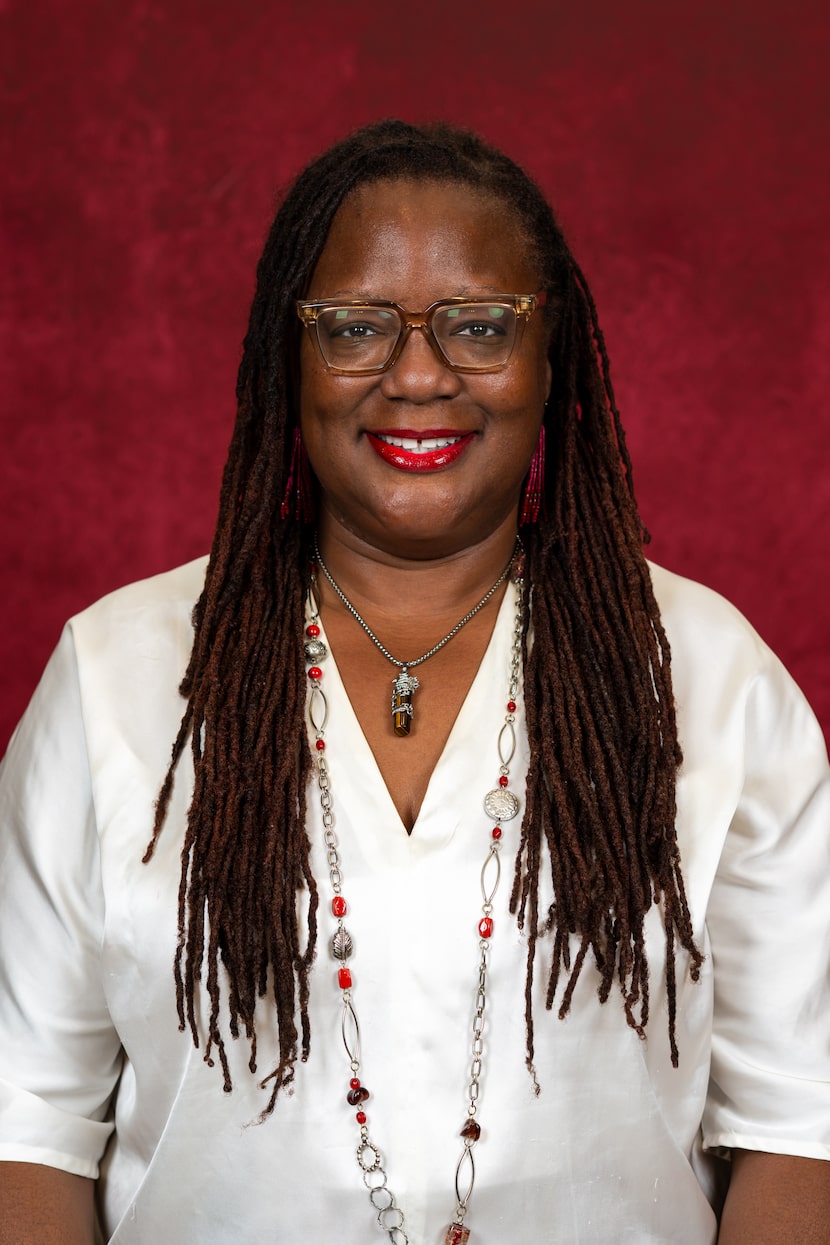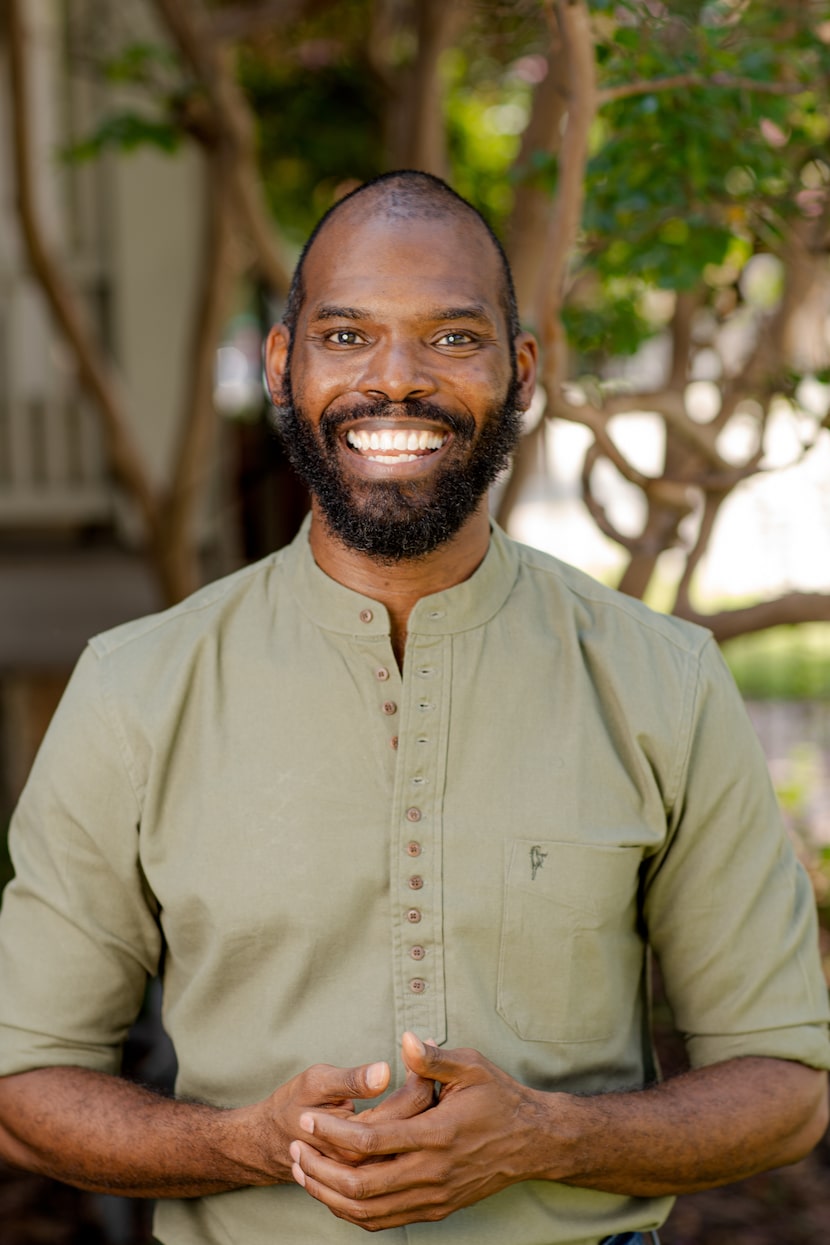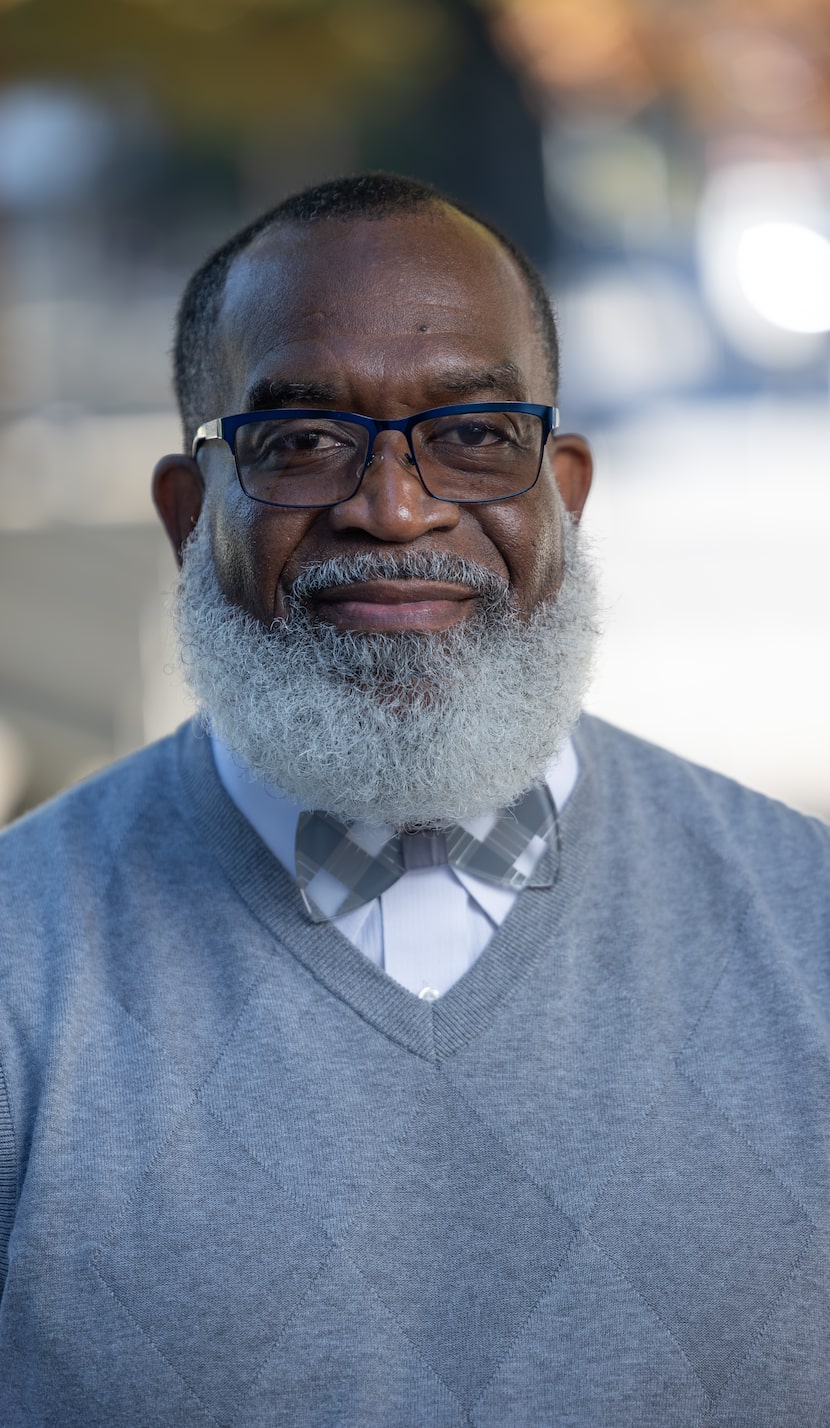Dallas Cowboys player Marshawn Kneeland’s death by suicide last week rattled the athletic world and those closest to him. It also reverberated through the Black community, where the loss of a 24-year-old Black man with a promising NFL career sparked painful conversations.
Whether it’s in church or at the barbershop, said Patrick LeBlanc, the news of Kneeland’s death has been “the hot topic.”
LeBlanc, 61, who is a longtime mental health advocate in Dallas, said the tragedy has shined a spotlight on a persistent and growing problem he has been warning about for years: a mental health crisis facing Black boys and men.
Since 2017, suicide has been the second leading cause of death in those ages 10 to 19, according to the American Academy of Child and Adolescent Psychiatry. (The leading cause has been firearm injuries.) Among Black boys and young men in that age group, the suicide rate has increased by 60%, and early adolescent Black youth are twice as likely to die by suicide as their white peers. For Black men overall, deaths by suicide have risen 25.3% over the last two decades.
Cowboys

Ratonia Runnels is an associate professor of social work at Texas Woman’s University.
LEO GONZALEZ / Leo Gonzalez / TWU Photo
“Culturally and historically, issues with mental health or mental illness have been downplayed, particularly among people of color,” said Ratonia Runnels, an associate professor of social work at Texas Woman’s University.
Stigma on many levels
While Kneeland was reported to have struggled with his mental health in the wake of his mother’s unexpected death, the full extent of those struggles has not been made public. Kneeland’s story fits a larger landscape of men grappling with mental health issues that often go unmet.
According to the Anxiety and Depression Association of America, about 1 in 10 men experiences depression or anxiety, yet less than half seek treatment. Many forces contribute to this reluctance: fear of vulnerability, ideas or perceptions about manhood and the lack of men talking about what they’re going through. For Black men, those gender norms — and the toxic masculinity they can reinforce — are especially pervasive, said Olufunke Awosogba, an assistant professor of psychiatry at UT Southwestern Medical Center.
Black men are expected to be strong and handle situations on their own, Awosogba said. “There’s no real space for men, and Black men in particular, to really share, to have that sense of connection.”

Olufunke Awosogba is an assistant professor of psychiatry at UT Southwestern Medical Center.
Brian Coats
That lack of connection was only heightened during the COVID-19 pandemic. In late June 2020, men reported slightly lower rates of anxiety than women but higher rates of depressive symptoms and suicidal thoughts, according to the Centers for Disease Control and Prevention. At one point that year, rates of men seeking mental health care increased more than fivefold over the previous year, according to the Association of American Medical Colleges. By 2022, however, only about 42% of men with a reported mental illness sought treatment, compared with 57% of women, according to the National Institute of Mental Health.
“Anything that hits the white male community disproportionately hits the people of color male community harder,” said Dr. Brian Dixon, a pediatric psychiatrist in Fort Worth. He added that a lack of connection “makes it even harder for them to feel like they have somebody to reach out to.”

Dr. Brian Dixon is a pediatric psychiatrist in Fort Worth.
Mariel Garza
On top of gendered expectations and loneliness are cultural norms within the Black community that equate strength and resiliency with silence. For example, among Black women, researchers describe the “superwoman schema” — a perceived obligation to hide emotion, project strength, suppress dependence and vulnerability and prioritize caregiving over self-care, according to the National Institutes of Health.
“Expressing a need for health in terms of mental health has been perceived as a sign of weakness,” Runnels said, “and so it makes it difficult to access care.”
Research also points to racism as a factor in Black mental health. A 2025 study published in the medical journal JAMA Network Open found higher exposure to discrimination increases a person’s chances of developing depression, anxiety or both, and that this outcome varies by race and ethnicity. Among Black adults, rates of depression increased from 9% between 2013 and 2016 to 21% in 2023, and rates of anxiety rose from 6% in 2018 to 27% in 2023.
The aftermath of George Floyd’s murder in 2020 is an example of how that discrimination takes a psychological toll. A 2021 study published in the journal Proceedings of the National Academy of Sciences found Black Americans reported significantly larger increases in depression and anxiety symptoms after Floyd’s death. Police brutality against Black Americans places them at disproportionate risk for poorer mental health, both reflecting and reinforcing racial inequality in the United States, the study’s authors wrote.
“When I saw George Floyd get killed,” LeBlanc said, “I think it may have been about nine days I didn’t leave the house. I didn’t shower. I didn’t shave. I was just a wreck.”
Removing hurdles, creating space
A 2021 National Survey on Drug Use and Health found that among Black and African American adults, 21% had a mental health concern, but only 39% of those surveyed received mental health services, compared with 52% of non-Hispanic white adults with a mental health concern.
Black men are even less likely to seek care compared to other groups, Runnels, Awosogba and Dixon said. They said a solution to the problem must start with normalizing open discussion about mental health and creating spaces where Black boys and men feel safe being vulnerable.
In recent years, more Black men have shared their struggles publicly. In 2016, rapper Kid Cudi posted on Facebook about dealing with depression, prompting the hashtag #YouGoodMan to trend, encouraging Black men to talk about their mental health. In 2018, music mogul Jay-Z added to the conversation in a CNN interview, discussing his experience with therapy and “the ridiculousness of the stigma” around mental health. He also advocated for mental health counseling in schools.

Patrick LeBlanc is the co-founder and executive director of Bridging the Gap Foundation.
YO-YO PHOTOGRAHY
Awosogba said distrust of the medical system runs deep in many Black communities, rooted in America’s history of nonconsensual medical research and inequities in health care. But community-based efforts — especially in churches and other faith spaces — can help Black men drop the shame they associate with their mental health issues, Awosogba added, and can be the first step to seeking mental health services.
“I think we lose sight of the fact that we are interdependent beings,” Awosogba said. “I’m sure we all can agree that when someone is cheering me on or providing advice or mentorship or guidance, I feel a sense of strength from that, I feel hopeful I can do this. But if you seclude yourself, that is a recipe for disaster, and that’s usually how suicide works.”
For LeBlanc, who is the co-founder and executive director of the Dallas-based Bridging the Gap Foundation, his mission is to chip away at the economic and cultural barriers that keep many Black boys and men from addressing their mental health. Bridging the Gap was born out of LeBlanc’s own struggles as a Black man with depression and accessing mental health services.
Since 2020, Bridging the Gap has funded hundreds of therapy and counseling sessions for Black boys and men as well as other people of color in the Dallas-Fort Worth area. LeBlanc said the organization is focusing on making mental health services more accessible and affordable for Black high school students and on changing the narrative around mental health among young people.
“If we don’t change the way they think, we’re not going to change help-seeking behaviors,” LeBlanc said. “Let’s get into a conversation and just start talking about it.”
The Here for Texas Mental Health Navigation Line: Grant Halliburton Foundation initiative connects North Texans with mental health resources customized to each caller. 972-525-8181 or HereForTexas.com.National Suicide Prevention Lifeline: 24-hour crisis hotline at 800-273-8255. Confidential online chat is available at suicidepreventionlifeline.org.Crisis Text Line: To get 24-hour support, text “HOME” to 741741. More information at crisistextline.org.North Texas Behavioral Health Authority: 24-hour crisis hotline. 866-260-8000 or ntbha.org.Suicide and Crisis Center of North Texas: Speak to a trained counselor on the 24-hour hotline at 214-828-1000, 800-273-8255 or sccenter.org.
Miriam Fauzia is a science reporting fellow at The Dallas Morning News. Her fellowship is supported by the University of Texas at Dallas. The News makes all editorial decisions.
 Reese Witherspoon company brings STEM festival for Gen Z girls to Dallas
Reese Witherspoon company brings STEM festival for Gen Z girls to Dallas
Teen attendees can learn about scent science, AI and STEM careers.
 How Tom Brady cloned his beloved dog with help from Dallas-based Colossal Biosciences
How Tom Brady cloned his beloved dog with help from Dallas-based Colossal Biosciences
The retired NFL quarterback worked with the biotech company known for its quest to bring back extinct species such as the woolly mammoth.
 Texas voters approved $3B for a dementia institute. Researchers explain why it matters
Texas voters approved $3B for a dementia institute. Researchers explain why it matters
Researchers say the new state-funded institute could speed discoveries, prevention efforts and treatments for Alzheimer’s and other brain diseases.
 Hot pants for good health: Fort Worth scientists try heat therapy to lower blood pressure
Hot pants for good health: Fort Worth scientists try heat therapy to lower blood pressure
Older adults wore heated pants in a study that hints at an easy new tool for protecting aging hearts.
